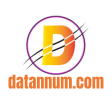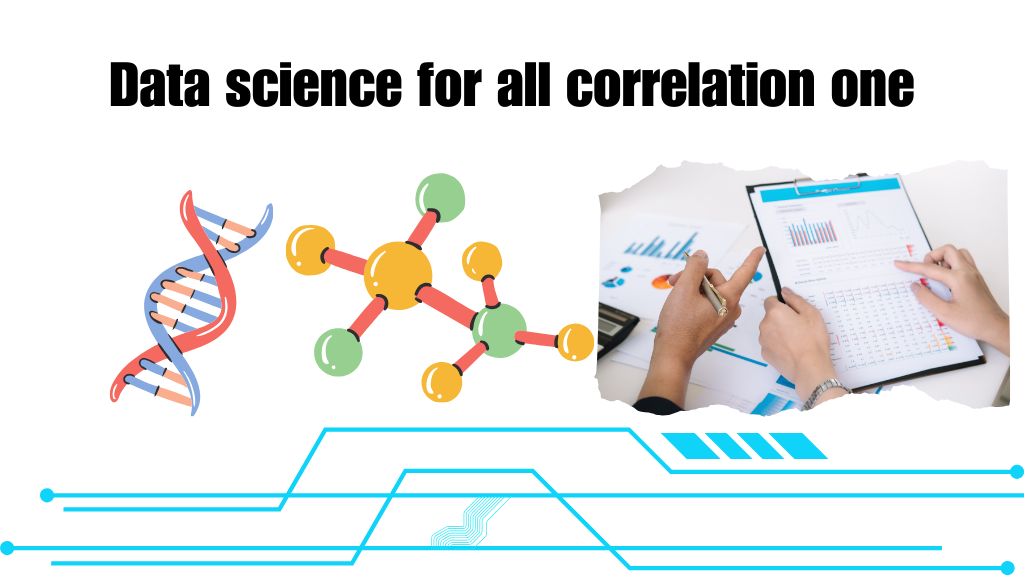Data science for all correlation one has emerged as one of the most dynamic and impactful fields in technology and business. As companies increasingly rely on data-driven decisions, the demand for skilled data scientists has surged. Recognizing this need, Correlation One has launched the initiative “Data Science for All” (DS4A) to democratize access to data science education and skills.
Introduction to Data Science
Data science combines statistical analysis, machine learning, and domain-specific knowledge to extract meaningful insights from data. It encompasses a variety of tasks including data cleaning, data visualization, predictive modeling, and interpreting complex datasets. Data scientists use a blend of programming, statistical skills, and business acumen to analyze data and drive decision-making.
Why Data Science Matters
- Informed Decision-Making: Data science helps businesses make informed decisions by analyzing historical data and predicting future trends.
- Efficiency and Automation: Data-driven automation can streamline processes, reduce costs, and increase efficiency.
- Competitive Advantage: Companies leveraging data science gain a competitive edge by understanding market trends and customer behavior better than their competitors.
- Innovation: Data science fosters innovation by uncovering hidden patterns and correlations in data that can lead to new products and services.
Correlation One and Its Mission
Correlation One is a technology company focused on making data science and analytics skills accessible to all. Their mission is to create a data-literate world by providing comprehensive training and tools to aspiring data scientists. Correlation One’s flagship program, “Data Science for All” (DS4A), embodies this mission by offering free, high-quality data science education to diverse communities worldwide.
The DS4A Program
“Data Science for All” is designed to equip participants with the skills needed to thrive in data-centric roles. The program is structured to be accessible to individuals from various backgrounds, regardless of their prior experience with data science. It covers a wide range of topics, from fundamental concepts to advanced techniques, ensuring a comprehensive learning experience.
Key Features of DS4A
- Inclusive Curriculum: The DS4A curriculum is tailored to accommodate beginners as well as those with some experience in data science. It covers essential topics such as Python programming, data visualization, machine learning, and more.
- Expert Instructors: Participants learn from industry experts and seasoned data scientists who provide practical insights and guidance.
- Hands-On Projects: The program emphasizes experiential learning through real-world projects that simulate industry challenges. This approach helps participants apply theoretical knowledge to practical scenarios.
- Community Support: DS4A fosters a supportive community where participants can collaborate, share knowledge, and grow together. This network is invaluable for career development and professional growth.
- Career Services: Correlation One provides career support, including resume reviews, interview preparation, and job placement assistance, to help participants transition into data science roles.
The DS4A Learning Journey
The “Data Science for All” program is structured into several modules, each focusing on a specific aspect of data science. Here’s a detailed overview of the learning journey:
Module 1: Introduction to Data Science
- Overview of Data Science: Understanding what data science is and its applications in various industries.
- Python for Data Science: Learning the basics of Python programming, including data types, control structures, and libraries like NumPy and Pandas.
- Data Cleaning and Preprocessing: Techniques for handling missing data, data normalization, and preparing datasets for analysis.
Module 2: Data Visualization
- Principles of Data Visualization: The importance of visualizing data and the principles of effective data visualization.
- Tools and Techniques: Using libraries such as Matplotlib, Seaborn, and Plotly to create various types of visualizations.
- Storytelling with Data: How to craft compelling stories through data visualization that communicate insights effectively.
Module 3: Statistics and Probability
- Descriptive Statistics: Measures of central tendency, variability, and distributions.
- Inferential Statistics: Hypothesis testing, confidence intervals, and p-values.
- Probability Theory: Basic concepts of probability, conditional probability, and probability distributions.
Module 4: Machine Learning Fundamentals
- Supervised Learning: Understanding regression and classification algorithms, including linear regression, logistic regression, and decision trees.
- Unsupervised Learning: Clustering techniques such as k-means and hierarchical clustering.
- Model Evaluation: Techniques for evaluating model performance, including cross-validation, ROC curves, and confusion matrices.
Module 5: Advanced Machine Learning
- Ensemble Methods: Advanced techniques such as random forests, gradient boosting, and bagging.
- Neural Networks: Introduction to neural networks and deep learning, including architectures like CNNs and RNNs.
- Natural Language Processing (NLP): Techniques for processing and analyzing textual data, including sentiment analysis and text classification.
Module 6: Big Data and Cloud Computing
- Big Data Technologies: Overview of big data tools and frameworks such as Hadoop and Spark.
- Cloud Computing: Using cloud platforms like AWS, Google Cloud, and Azure for data storage and processing.
- Scalability and Performance: Techniques for handling large datasets and ensuring efficient data processing.
Module 7: Capstone Project
- Project Selection: Choosing a real-world problem to solve using the skills learned throughout the program.
- Project Execution: Applying data science techniques to analyze data, build models, and derive insights.
- Presentation: Presenting the project findings to peers and instructors, simulating a professional data science presentation.
Impact of DS4A
“Data Science for All” by Correlation One has made a significant impact on participants and the broader community. Here are some key outcomes:
Empowering Individuals
DS4A has empowered thousands of individuals to pursue careers in data science. By providing accessible education, the program has opened doors for people from underrepresented communities to enter a high-demand field. Many participants have successfully transitioned into data science roles, contributing to a more diverse and inclusive workforce.
Bridging the Skills Gap
The program addresses the skills gap in the job market by equipping participants with the knowledge and practical experience required by employers. This alignment with industry needs ensures that graduates are job-ready and capable of handling real-world data challenges.
Fostering Innovation
By democratizing access to data science education, DS4A fosters innovation across various sectors. Participants bring diverse perspectives and ideas to the table, driving creativity and problem-solving in their respective fields.
Building a Community
DS4A has created a vibrant community of data science enthusiasts and professionals. This network provides ongoing support, collaboration opportunities, and a platform for sharing knowledge and experiences. The sense of belonging and collective growth is a cornerstone of the program’s success.
Success Stories
The success of “Data Science for All” is reflected in the achievements of its participants. Here are a few inspiring stories:
Jane’s Journey from Marketing to Data Science
Jane, a marketing professional with a passion for data, joined DS4A to enhance her analytical skills. Through the program, she learned Python, data visualization, and machine learning. Jane applied her new skills to analyze customer data, leading to more targeted marketing campaigns and improved ROI. She eventually transitioned to a data analyst role, where she continues to leverage data science to drive business success.
Ahmed’s Career Transformation
Ahmed, a recent graduate in economics, struggled to find a job that matched his skills. He enrolled in DS4A to gain practical experience in data science. Ahmed’s capstone project involved building a predictive model for stock prices, which impressed potential employers. He secured a position as a data scientist at a financial services firm, where he uses his skills to develop trading algorithms and financial models.
Maria’s Contribution to Healthcare
Maria, a healthcare professional, recognized the potential of data science to improve patient outcomes. Through DS4A, she learned how to analyze medical data and build predictive models. Maria’s project focused on predicting patient readmissions, helping her hospital implement strategies to reduce readmission rates. Her work not only enhanced her career but also made a positive impact on patient care.
The Future of Data Science Education
As data science continues to evolve, so does the need for effective education and training. Correlation One’s “Data Science for All” program is at the forefront of this evolution, setting a benchmark for accessible and high-quality data science education. The program’s success highlights several key trends and considerations for the future:
Lifelong Learning
In a rapidly changing field like data science, continuous learning is essential. Programs like DS4A must adapt to new technologies and methodologies, ensuring that participants stay current with industry trends. Lifelong learning opportunities, such as advanced courses and professional development workshops, will be crucial.
Industry Collaboration
Collaboration between educational programs and industry is vital for aligning curriculum with real-world needs. Partnerships with companies can provide valuable insights into emerging trends and skill requirements, ensuring that graduates are well-prepared for the job market. Internships, mentorships, and project collaborations can enhance the learning experience and provide practical exposure.
Personalized Learning Paths
Personalized learning paths cater to the diverse backgrounds and career goals of participants. Adaptive learning technologies and flexible course structures can help tailor the educational experience to individual needs. By addressing different learning styles and paces, programs can maximize their impact and effectiveness.
Emphasis on Ethics and Responsibility
As data science becomes more integral to decision-making, ethical considerations are paramount. Programs like DS4A must emphasize the importance of ethical data use, privacy, and transparency. Equipping participants with the knowledge to navigate ethical dilemmas will ensure that data science is used responsibly and for the greater good.
Conclusion
“Data Science for All” by Correlation One is more than just a training program; it’s a movement towards a more inclusive and data-literate world. By providing accessible, high-quality education, DS4A empowers individuals to transform their careers and contribute to their communities. The program’s comprehensive curriculum, expert instruction, and supportive community create an environment where participants can thrive and innovate.
As the field of data science continues to grow, initiatives like DS4A will play a crucial role in shaping the future. By bridging the skills gap, fostering innovation, and promoting diversity, “Data Science for All” is paving the way for a brighter, data-driven future. Whether you’re a beginner looking to start a career in data science or a professional seeking to enhance your skills, DS4A offers the resources and support you need to succeed. Embrace the opportunity to join this transformative program and be a part of the data science revolution.


1 thought on “Data science for all correlation one”